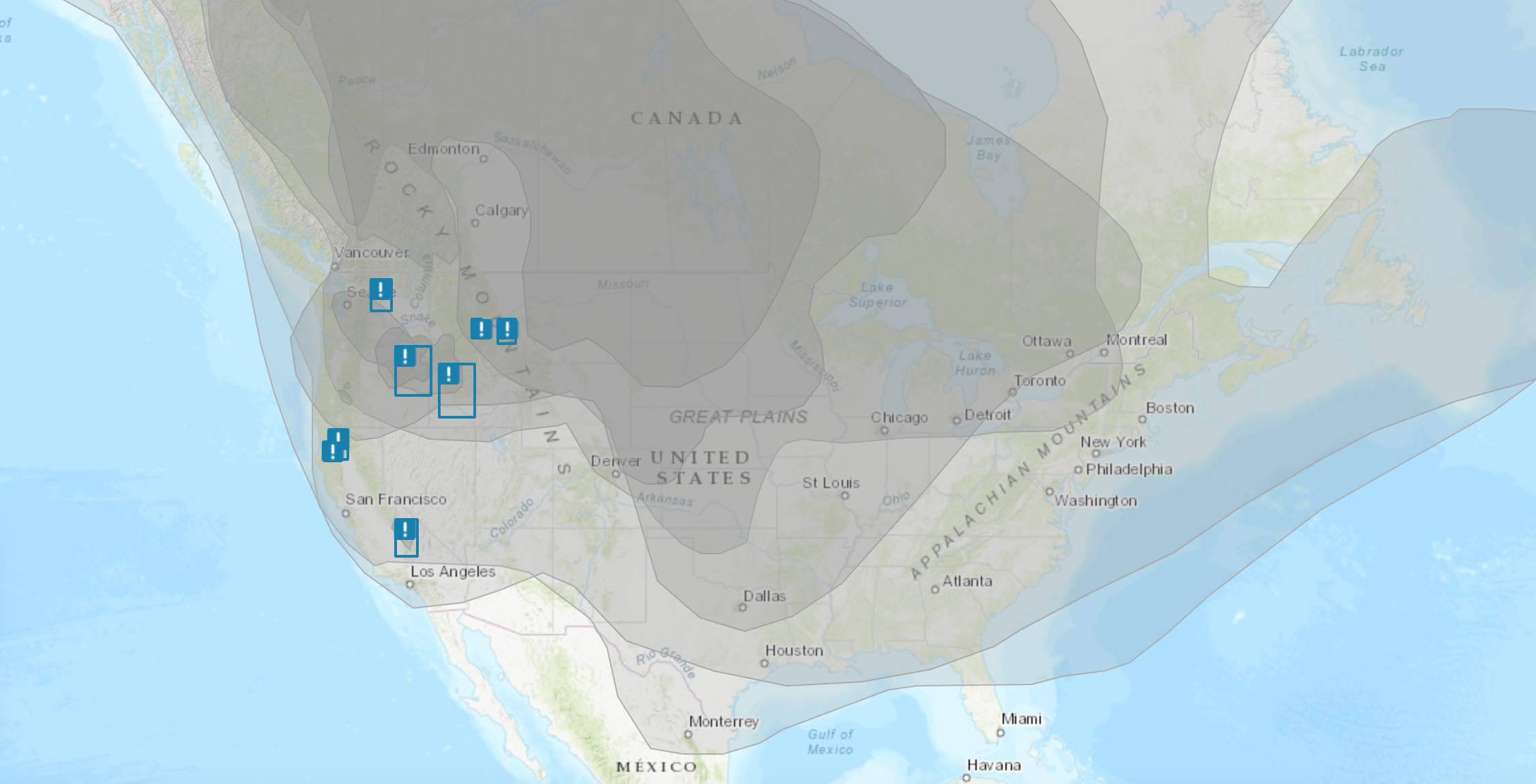These are the parts of the US set to see haze from Canadian wildfires this week
Hundreds of wildfires are burning in the western provinces of Canada

An outbreak of wildfires in the western region of Canada could cause hazy conditions and poor air quality for parts of the U.S. this week.
Though much more subdued than during last year’s wildfire season, hazy conditions from the U.S.’s northern neighbor are likely to shroud northern states — from Montana to Maine and as far south as Kansas — as hundreds of fires continue to burn in the provinces of Alberta, British Columbia and Saskatchewan. Firefighters are working to contain active fires while preventing others from springing up.
The National Weather Service has issued air quality alerts for Wyoming, Montana and Oregon, though those conditions could be caused by a mix of Canadian wildfire smoke and regional wildfire smoke.
But anyone living near the border of Canada in Montana, North Dakota and Minnesota is likely to experience the most noticeable difference in air clarity and quality.
Much of South Dakota and Nebraska are likely to experience haze as well. Smoke plume maps from AirNow.gov show a wind pattern that drags the smoke down the center of the U.S.

The northwest portion of Kansas and the northeast part of Colorado are also likely to see hazy skies.
Air quality conditions in all of those areas are in the “moderate” to “unhealthy for sensitive groups” range.
But other parts of the U.S. may be impacted as well.
On Monday morning, residents of northern Maine woke up to a haze in the sky, which the Caribou National Weather Service said was due to the wildfires from the West.
Officials will continue to monitor these conditions for the next week. The National Weather Service said storms throughout the regions may help lift some of the hazy conditions.
Every year, between March and October, Canada experiences wildfire season — with most fires peaking around May.
This year is no different, though the late start to the wildfire outbreak may be due to drought-like conditions and lightning storms.
A similar combination of drought and lightning contributed to the record-setting wildfire season last year with more than 6,000 fires burning more than 71,000 square miles of land.
Residents of the U.S. were heavily impacted by the wildfire smoke last year when the plume cast a yellow shadow over major cities like New York, Washington D.C., Philadelphia, Chicago and more.
Join our commenting forum
Join thought-provoking conversations, follow other Independent readers and see their replies
Comments
Bookmark popover
Removed from bookmarks